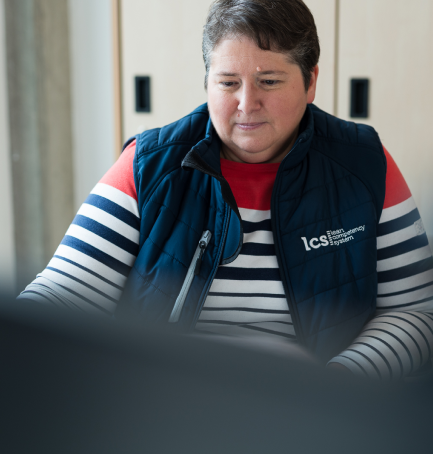The LCS Qualifications Framework
Seven Competency Levels
The Seven Levels of Competency
The LCS qualifications framework has seven competency levels, ranging from Level 1a to Level 3b.
They are grouped into three categories: 1) Fundamental, 2) Technical and 3) Strategic. The levels cover a broad range of competency; from awareness of core principles of Lean, right up to strategic Lean leadership.
An accredited organisation can initially accredit to one or several levels and can add levels to its accreditation at any point in its two year licence period. Accredited courses need to be aligned to a particular level, which allows certificates to be issued to those who successfully complete the course assessment.
Each Level has a Descriptor, which states what knowledge and practical capability an individual should possess.

Level 1: Fundamental
Level 1a: Lean Awareness
Awareness and basic understanding of Lean principles, underlying continuous improvement concepts, and an ability to understand and articulate fundamental Lean ideas.
Level 1b: Diagnosis & Analysis
Knowledge of Lean diagnostic, analytical and planning techniques and the ability to use them in the workplace to understand customer/stakeholder value, the current state, solve problems and propose future states.
Level 1c: Improvement & Implementation
This level focuses on knowledge, understanding and application of Lean improvement and implementation techniques. Those at LCS 1c should be able to actively participate in improvement activities in the workplace.
Level 2: Technical
2a: Implementation & Design
Advanced Lean knowledge and leadership competencies required for Lean management. Ability to design and implement programmes, playing a leading role in managing departmental or cross functional teams, with some support and guidance.
2b: Implementation & Leadership
Advanced Lean knowledge and leadership competencies required for Lean management. Ability to design and implement programmes, playing a leading role in managing inter-business, departmental or cross functional teams, with high levels of responsibility and requiring minimal support and guidance.
Level 3: Strategic

Level 3a: Strategic Enterprise
Level 3 focuses on advanced Lean knowledge and the strategic and leadership competencies required for Lean leadership at a senior level. Those with LCS Level 3a capability should be able to design Lean strategies for a significant business unit and demonstrate appropriate Lean leadership qualities and practices within an organisation. At Level 3 the emphasis is on implementation experience at a strategic or transformational level.

Level 3b: Strategic Supply Chain
Level 3 focuses on advanced Lean knowledge and the strategic and leadership competencies required for Lean leadership at a senior level. Those with LCS Level 3b capability should be able to design Lean strategies for an organisation and demonstrate appropriate Lean leadership qualities and practices across a supply chain. Note that the difference between 3a and 3b is to do with scale, level of responsibility and scope of experience.
Talk to our qualified experts today about starting your LCS journey

